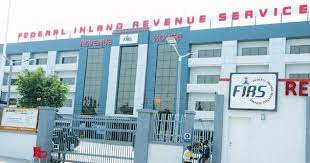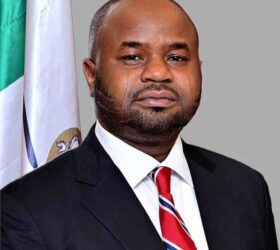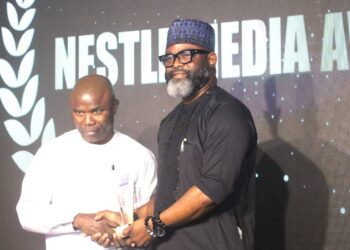If we agree with the utilitarianist view that one thing a leader must do is consider making choices that produce the greatest good for the greatest number of people, then Nigerians should commend President Bola Tinubu for choosing to break away from the past by elevating common national interest to a new level. And this did not start when he became president as this leadership trait had been demonstrated in various spheres he had held sway. His antecedents speak for him.
In May last year, President Bola Tinubu reinforced this view that he is for all. He pledged to govern Nigeria impartially and in accordance with the Constitution as well as the rule of law. He went further to task the citizenry to embrace national affinity and brotherhood. To observers who look at things dispassionately, this avowed commitment of the President has largely reflected in how he has been running his administration since he took over the reins of government.
President Tinubu, in his inaugural speech, among other things, said: “Today, let us recommit our very selves to placing Nigeria in our hearts as the indispensable home for each and every one of us regardless of creed, ethnicity, or place of birth…The South must not only seek good for itself but must understand that its interests are served when good comes to the North. The North must see the South likewise,” he had said.
One area where President Tinubu has again shown fidelity to his commitment is on the discourse around sharing formula for Value-Added Tax (VAT). Let me use this opportunity to correct erroneous impression that the North is against the president’s tax bills. The disagreement voiced by some northern leaders is on the proposed adoption of derivation model/approach to sharing of VAT revenue. VAT is only a portion of the bills. For emphasis, the four bills currently being scrutinized by the parliament seek to overhaul and modernise the country’s fiscal landscape in a way that brings benefits to the citizens and the three tiers of government.
Revealing President Tinubu’s position at an interactive session with members of the parliament recently, chairman of the Federal Inland Revenue Service (FIRS), Zacch Adedeji, said the president is concerned that Lagos and three other states go home with 70% of VAT revenue monthly, with Lagos (the president’s state) collecting the lion’s share of 42%.
“Today, I just signed the data on VAT [sharing] for October. Lagos will take 42% of the VAT[revenue], Rivers will take 16%, Oyo State will take 5.2%, and the FCT will take 10%. Go and check; these three states [and the FCT] are taking more than 70%. Why? Because those are the places where the head offices of those companies.…states like Borno and Bauchi collect only 0.32% and 0.4% of VAT proceeds respectively, compared to Lagos’ 42%.
“Any day I sign off on the data, I don’t feel like I am a Nigerian because this is not what we represent in our prayer as a nation. That is why, in the wisdom of Mr. President, we need to change this structure,” Adedeji told the lawmakers.
Listening to Adedeji, one would know that President Tinubu is a fair and just leader. He could have directed that status quo be maintained when some northern leaders apparently misjudged his intention on the subject. After all, Lagos and two other states will continue to cash out, while majority of the states will be left with what they currently get from the pool. So, the current attempt at reengineering the tax system is a big sacrifice for which Tinubu should be commended.
While there has been opposition to an aspect of the bills from the North, it is salutary that there are equally voices of reason who have studied the Bills and have seen the goodness of the heart of President Tinubu. A pro-North former Kaduna senator, Shehu Sani, while commending the Bills, said they are not in any way anti-North. According to the fiery critic, “It’s in fact economically beneficial and fair to all parts. People should keep aside sentiments and read the Bills carefully. It is a comprehensive and bold move to harmonise and simplify tax administration and streamline its operations and enforcement”
The Speaker of the House of Representatives, Tajudeen Abass, at the interactive session, located the controversy surrounding the VAT aspect of the Bills rightly, describing it as a reflection of their importance. For him, such debates are healthy and necessary in a democracy.
Apart from the fact that these Bills will when passed into law and assented to make states to look inwards and rethink, the issues of imbalance, fairness would be addressed by promotion of equitable distribution of the VAT revenue. These are some of the grey areas the reforms seek to address.
That noted, the total benefits of the bills should have been considered by those raising issues on VAT. People forget easily the confusing overlap of multiple tax laws. For example, why should small businesses pay taxes to the three tiers of government, a development that makes taxation unnecessarily complex? Why should there be multiple laws dealing with almost similar aspects of taxes in such a way that compliance with tax obligation is made difficult for taxpayers? Why should Nigeria not have a law that regulates cryptocurrency operations within its territory? Why in 2024 should we as a country be operating under laws that were made in 1939 (Stamp Duty Act), laws that are archaic and unfit for businesses in this modern time? The Federal Inland Revenue Service (FIRS) has to give way for the Nigeria Revenue Service (NRS) in order to accurately reflect the agency’s comprehensive services.
If there is any state that should be bellyaching over the proposal on restructuring of VAT sharing formula, it should be Lagos State. If there is any region whose voice should be loudest against the bills, it should be the South-West. But Lagos and the South-West understand where the President is coming from and have strong faith in his capacity to act in the best interest of the country.
With the town hall meeting held by Channels TV on the subject and with the kind of end-of-discussion explanation provided by Mr Taiwo Oyedele, who chaired the presidential committee on the matter, all opposition should stop henceforth. The National Assembly is there to look into the concerns raised by a few people and seek out ways to iron out those issues with vitiating the general objective of the Bills. It will not serve the interest of those speaking against the Bills if Lagos, which is going to be the biggest loser in the proposed VAT regime, sees reason to challenge either the status quo ante or the proposal. It will be recalled that in the immediate past administration, the issue of VAT sharing was litigated. A political option was sought to prevent the matter from running its full course.
Salamah Akindeko, a finance enthusiast, writes from Ila, Osun State.










































